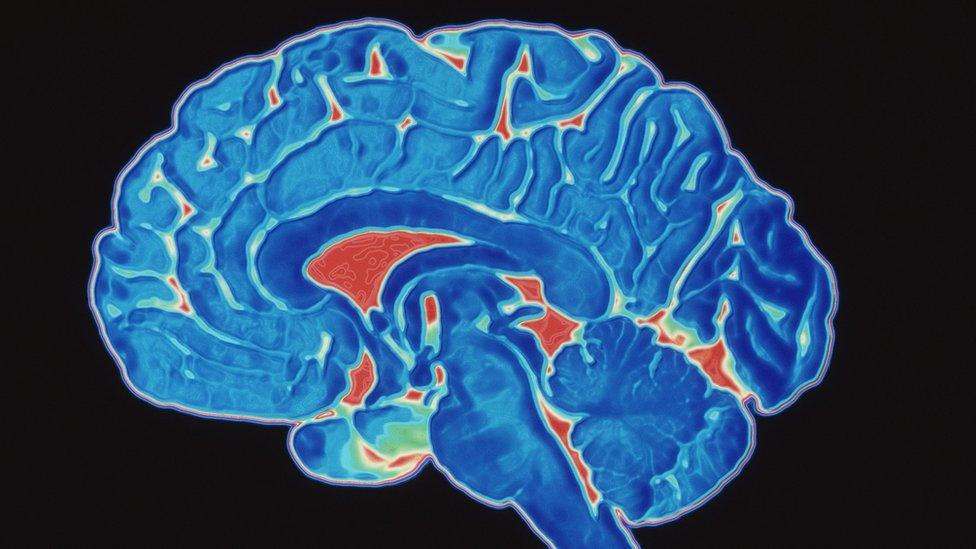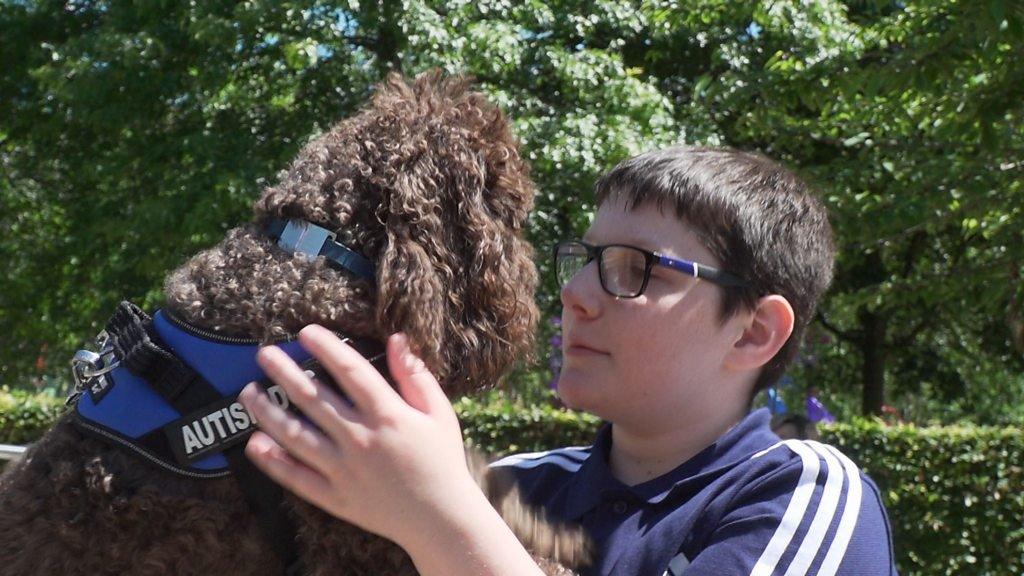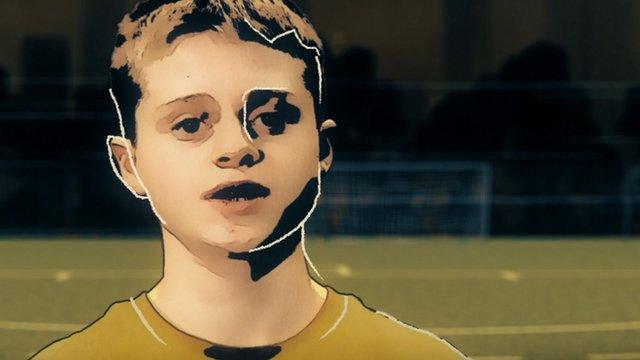Tourette Syndrome: What is it and how can you help?
- Published
WATCH: TikTok star Evie Meg talks about living with Tourette Syndrome
It is Tourette Syndrome (TS) Awareness Day on Tuesday 7 June.
The aim is to shine a light on what it's like to live with Tourette's and how you can help support people who have the condition.
Read Newsround's guide to find out more.
What is Tourette Syndrome?

TS is a condition that affects some of the chemicals in the brain
Tourette Syndrome is a neurological condition, which means it's to do with the brain.
Scientists don't yet know what causes it but it is thought to do with an imbalance of brain chemicals such as dopamine, which send signals around the body.
TS is often inherited, which means it has been passed down from your parents or other relatives.
It is not infectious so you can't catch it.
Most people who have TS also have other complex conditions to cope with as well, such as ADHD, OCD and Autism.
What are the symptoms?

Billie Eilish recently spoke about living with Tourette's
The key symptoms of TS are called tics.
Tics are repeated movements and sounds that happen without someone's control.
Tics can occur in nearly any part of the body and in any muscle. Movement tics can include fast blinking or mouth twitches. Sound tics can include throat clearing and sniffing.
The biggest myth around TS is that everybody with the condition swears. However, only around 15 percent of people with Tourette's have this symptom. Most people with TS do not swear or curse because of the condition.
What NOT to say to someone with Tourette syndrome
Someone with TS may be able to hold back their tics for a short time but eventually they have to let them out.
Tics can be brought on by anything at all but stress and anxiety are common triggers.
They can be helped with relaxation techniques or concentrating on an activity like playing the piano.
Who gets TS?

Former Everton and Manchester United goalkeeper Tim Howard start experiencing tics as a child
Lots of people have TS but most people have symptoms that are so mild they don't worry about them or may not even notice them.
It affects one school child in every hundred and is more common in boys.
More than 300,000 children and adults are living with TS in the UK, according to the charity Tourettes Action.
Tics usually start in childhood around the age of six to seven years and tic symptoms can change - the amount someone gets and how often they experience them - over time.
What can be done about it?

Exercise like swimming can help manage symptoms
Most people with TS are not significantly affected by their tics or behaviours, and so do not need medication.
But there are medications which can help control the tics if they are causing problems.
People in the TS community also support the use of other ways to help them manage symptoms, including keeping a good diet, exercise and behavioural therapy.
CBBC Lifebabble: Ways to help if you feel worried
How can you help someone you know with Tourette Syndrome?
Be friendly
Support them against bullies
Try not to stare and don't laugh at them
Include them in games, invite them to parties
Be patient - tics can make people feel tired and unhappy, and can make it hard to do lessons and homework
Check in - everyone with TS is different and has their own way of dealing with tics. It's ok to ask how people how they are and how they would like you to react to their tics
Remember that tics change all the time, so expect new ones
Remember that the boy or girl with TS can't help their tics.
If you would like more information about Tourette Syndrome, you can contact the charities Tourettes Action (for England, Wales and Northern Ireland) or Tourette Scotland.
- Published1 April 2021

- Published1 July 2019

- Published27 March 2017

